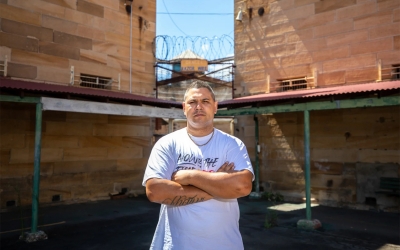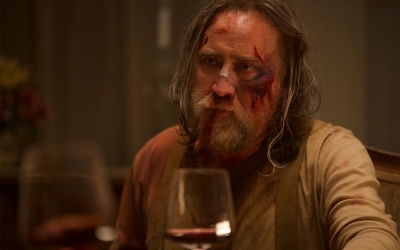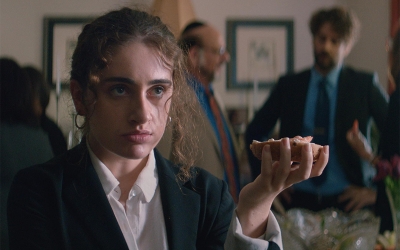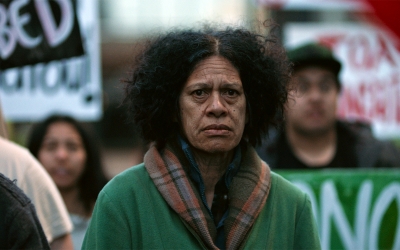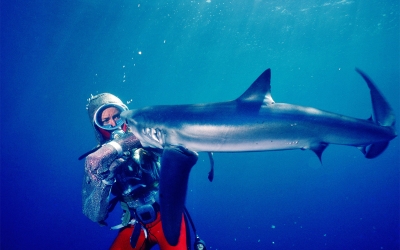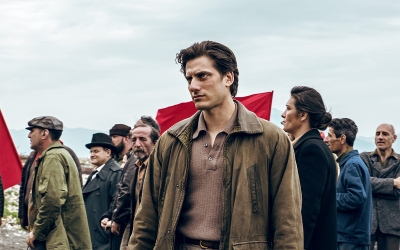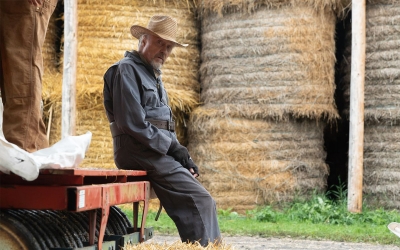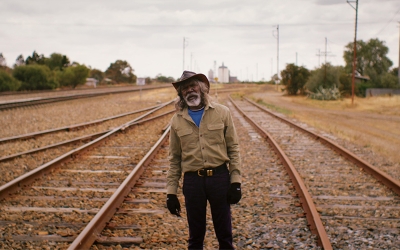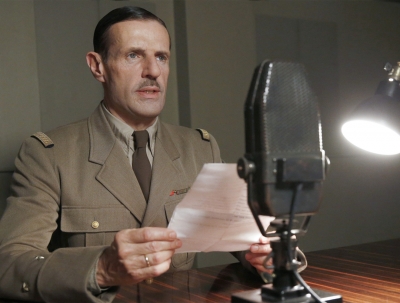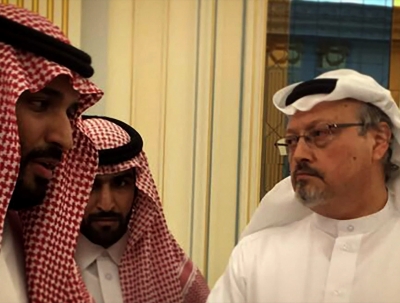Film
Dean Gibson, a Guugu Yimithirr man, is the writer and director of Incarceration Nation, one of the latest documentaries on SBS On Demand. It’s worth noting this because Incarceration Nation, for those who believe this country was ‘settled’ and is equal for all, is essential viewing. Gibson says that ‘Australia was founded by the English with one clear purpose: to create a prison island. More than two hundred years later, not much has changed.’ It’s a strong statement. Having written about this before, I would take it one step further and say that Australia was founded to create not a prison, but an economy.
... (read more)Truffle hunters and the pigs they bond with would unlikely subjects for a film, yet in 2021 cinema goers have been treated to two films centring on such characters. Earlier this year, the documentary The Truffle Hunters (2020) offered a whimsical tribute to the humble foragers of northern Italy. Now Michael Sarnoski’s Pig presents a darker but no less playful portrayal of a fictionalised hunter.
... (read more)With their forced solemnity and rigid formality, religious ceremonies have long been ripe for comic subversion – see Four Weddings and a Funeral, Death at a Funeral (the original and the American remake), This Is Where I Leave You, Six Feet Under, et al. – but Shiva Baby, a new indie comedy from American writer–director débutante Emma Seligman, gives the sub-genre a refreshing Millennial update. Set almost entirely at a shiva (the Jewish equivalent of a post-funeral wake), Shiva Baby depicts one (very bad) day in the life of college student Danielle, wonderfully played by rising comic star Rachel Sennott. We first meet Danielle mid-coitus with Max (Danny Deferrari), her ‘sugar daddy’ – an older man who forks over a handful of cash and an expensive bracelet in exchange for the time they spend together. Danielle is almost immediately summoned to the shiva in suburban New York. Her first question when she arrives is: ‘Mom, who died?
... (read more)Cousins, a new release from New Zealand, has its heart in its throat, harmonising a driftless protagonist with the enduring love of her whanau (Māori for extended family).
... (read more)Any film about shark conservation faces a dilemma: how to de-sensationalise an animal whose cinematic charisma relies on the combination of thrill and fear. What reels us in as viewers is the excitement of an up-close, full-frontal encounter with a dangerous predator. Film scholar Tom Gunning talks about this as ‘lust for the eyes’, when an image ‘rushes forward to meet the viewer’, provoking ‘a complicated sort of excitement bordering on terror’.
... (read more)‘I want to tell you about my incessant march through the kingdom of knowledge.’ Hands in pockets, jacket collar turned up against the wind, Martin Eden (Luca Marinelli) strides forward, centre-frame. He cuts a bold, broad-shouldered figure against a steely Rothko of a backdrop, all cool blues, hazily banded into sky, sea, and deserted concrete waterfront. But for his lilting napoletano voiceover, and the chanson strains of Joe Dassin’s 1970s hit ‘Salut’ – addressed, like Martin’s words, to a lover who’s far away in more senses than one – he seems like a man out of space and time.
... (read more)Percy vs Goliath, known simply as Percy in some territories, is based on a real-life legal case of an independent crop farmer who took on a large-scale agrochemical corporation. One can imagine a shared sentiment that the story would make a great Hollywood movie. Problematically, the reason for thinking this is because Hollywood has made this film before, repeatedly. The familiarity and predictability of the events depicted are the very reason why it shouldn’t be made into a film.
... (read more)In 1955, Charles Chauvel’s Jedda – the first colour feature film made in Australia – was released. At the January première in Darwin, the two Aboriginal cast members, Rosalie Kunoth-Monks and Robert Tudawali, were the only ones permitted to sit with the white people. (Later that year it was released in the United Kingdom as Jedda the Uncivilized.)
... (read more)General Charles de Gaulle (1890–1970) was an icon of the French Resistance movement during the Nazi occupation of France in World War II. Lending his name to the postwar Gaullist myth that presented France as a collective, unalloyed nation of resistance fighters, de Gaulle (founder and president of the Fifth Republic from 1959 to 1969) became a symbol of French strength, determination, and honour during a divisive and turbulent period of history.
... (read more)Watch out. Depending on the tone and context in which they’re said, these words combine to various effects. In the presence of a definite danger – a frisbee flung carelessly or a vehicle careening off course – they ring with a flinching impact. Muttered indistinctly and without danger, ‘watch out’ becomes the threat itself, from word of caution to verbal omen. Watch this. With the alteration of a word, caution transforms into excitement. The demand to look twists into a signal of anticipation, uttered, perhaps, by a hopeful entertainer, preparing some spectacle or act of prestidigitation. Now, you’ve got to watch this. Less immediate, less anticipatory, here the pressure to look is pressed further, with renewed urgency, connecting it to social or even civic expectations.
... (read more)

